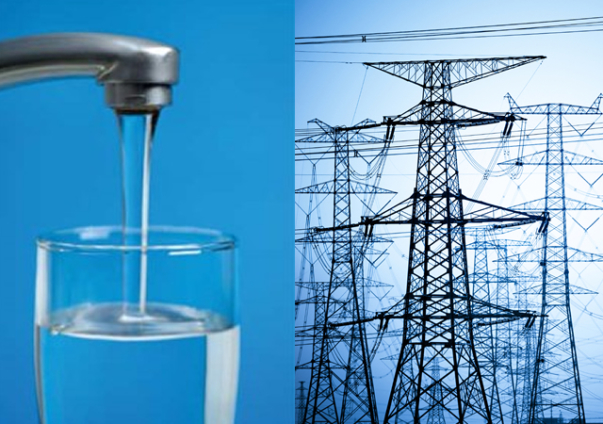The prices Ghanaians do pay for their Electricity and Water consumption are expected to increase effective July 1 to September 30, 2024 according to report from the Public Utilities Regulatory Commission (PURC).
The commission indicated that, water would go up by 5.16 per cent for all customer class while electricity jump by 3.45 per cent for lifeline consumers (0-30 kWh), 5.84 per cent increase for all other residential consumers who are not part of lifeline category bracket (31kWh- above) as well as non-residential category.
In addition, there is an increase of 4.92 per cent in electricity tariff for the industrial category for the period under review.
READ ALSO: PURC increases electricity tariffs by 4.22% and water tariffs by 1.18%
“The Public Utilities Regulatory Commission wishes to inform consumers of Electricity and Water that, there has been a review of the existing tariffs, to take effect from July 01, 2024, to September 30, 2024. These reviews have been undertaken in line with the Commission’s Quarterly Tariff Review Mechanism, which tracks and incorporates movements in key uncontrollable factors, namely the exchange rate between the US$ and the Ghana Cedi, domestic inflation rate, the electricity generation mix, and the cost of fuel, mainly natural gas. These reviews are undertaken to maintain the real value of the tariffs, thereby keeping the utility service providers financially viable to enable them deliver on their services to consumers” Executive Secretary of the PURC, Dr Ishmael Ackah made it known in a statement.
He added, “The Commission, in undertaking this review also considered the competitiveness of industries and the general living conditions of the Ghanaian. Having considered all the underlying factors, the Commission wishes to announce that, there will be 3.45% increase in electricity tariffs for lifeline consumers (0-30kWh); 5.84% increase for all other residential consumers who are not part of the lifeline category bracket (31 kWh and above) as well as the non- residential category. The industrial category will experience an increase in electricity tariffs of 4.92%. Water Tariffs will experience an increase of 5.16% for all customer classes for the period under review.”
He explained that the reviews increment have been undertaken in line with the commission’s Quarterly Tariff Review Mechanism, which tracks and incorporates movements in key uncontrollable factors, namely the exchange rate between the United States Dollar and the Ghana Cedi, domestic inflation rate, the electricity generation mix, and the cost of fuel, mainly natural gas.
READ ALSO: Inside No. 9 Series: Everything To Know
“Total revenue requirement for the first quarter of 2024, amounted to GHS5.67 billion. In the second quarter, the revenue requirement is projected to be GHS6.81 billion. This will result in an increase of GHS1.14B over the first quarter revenue requirement. The Commission, however, decided to recover GHS5.90 billion of the GHS6.81 billion required for the second quarter. This decision was taken by the Commission taking into consideration the revenue collection performance of the sector, since continuous increase in tariffs have not yielded the corresponding increase in revenue collection by the utilities to cover sector expenditure. In addition, the Commission considered the negative effect of passing on the entire revenue required in one tranche on customers. Thus, the difference of GIIS906.21 million, will be recovered in subsequent quarters.”
PURC added that the Revenue requirement for the second quarter of 2024 amounted to GH₵670.18 million, stressing that an additional GH₵34.33 million needs to be recovered in the second quarter of 2024.
“Revenue Requirement for the Urban Water Supply Industry (UWSI). Total revenue requirement for the water sector for the first quarter of 2024, amounted to GH₵635.86 million. Revenue requirement for the second quarter of 2024 amounted to GHS670.18 million. An additional GH₵34.33 million needs to be recovered in the second quarter of 2024. The water tariff has been adjusted upwards by 5.16%”.

